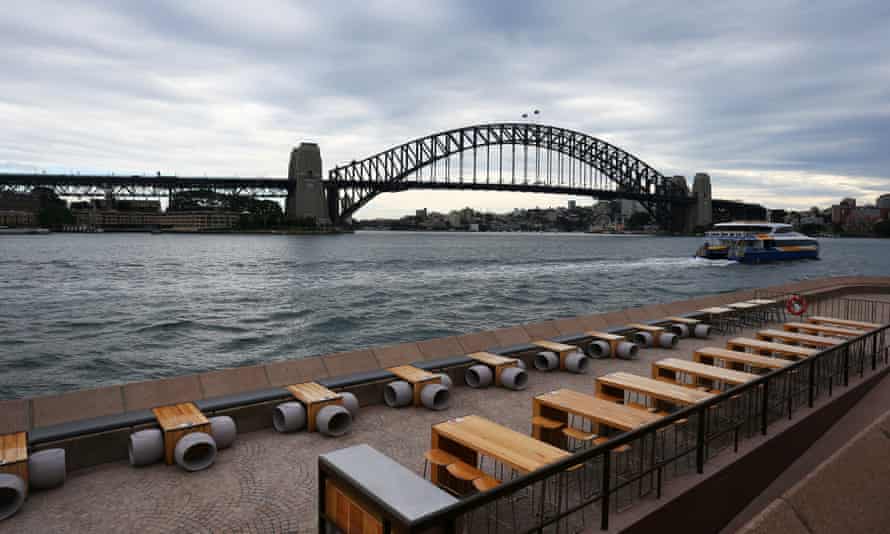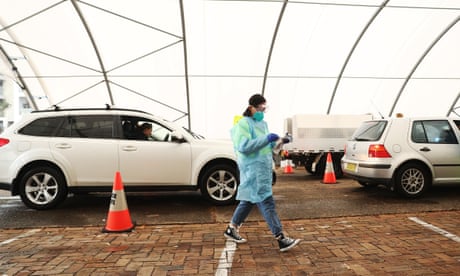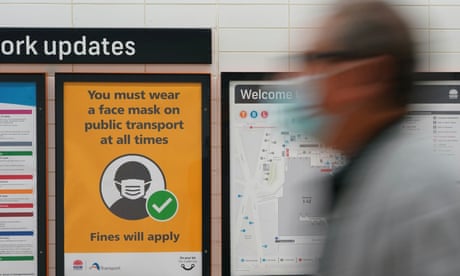Extract from The Guardian
After a world-leading response in 2020 it did not have to be this way.
‘The residents of inner-city Sydney have been thrown into a lockdown that ought to have been imposed a week ago.’
Last modified on Fri 25 Jun 2021 15.03 AEST
Eighteen months into the Covid pandemic, Australians by now should have been looking forward to prudently and cautiously opening to the world.
But rather than opening up, our largest city is shutting down.
The residents of inner-city Sydney have been thrown into a lockdown that ought to have been imposed a week ago.
Instead of embarking on winter school holidays, Sydney’s lockdown has disrupted the lives of millions of Australians, deprived businesses of sorely needed income and many casual staff of their jobs.
And worse, 65 people (and counting) have been diagnosed with Covid-19 and many thousands forced to isolate pending the results of Covid testing.
The daily release of case figures, the ever-changing list of new exposure sites and earnest entreaties for people to be tested recall the most dismal and chaotic days of the early stages of the pandemic.
We should not be here.
At the beginning of 2020, we knew little for certain about the nature of Covid and how best to protect ourselves from it.
Thankfully, Australia and New Zealand declined to follow the advice to “live with Covid”.
After a rocky start, the people saw the merit of opting for Covid zero. This turned out to be a boon for both public health and economic recovery.
Despite the opposition of the federal government, Covid zero became the de facto strategic goal of public health policy
Zero Covid required the effective closure of international and internal borders, sustained changes in behaviours that might transmit the virus, and the building of contact tracing and testing to contain local outbreaks.
Despite the opposition of the federal government, Covid zero became the de facto strategic goal of Australian public health policy. It delivered the precious gift of time to regroup, free from the pressure of rising caseloads, unnecessary social and economic disruption, and death.
The shield was the building of effective quarantine facilities capable of responding to the emergence of increasingly more infectious and deadly variants of the original Covid virus.
The sword (or the needle) should have been the urgent procurement of the best vaccines in the shortest possible time to enable all Australians to be fully vaccinated by mid-2021.
By the end of 2020, both new threat and new hope materialised.
The threat was the emergence from December of the Delta Covid strain. It is far more infectious than the original and subsequent variant strains that caused such havoc in 2020. Crucially, it is easily transmitted in air and far beyond the 1.5 metre social distancing limit recommended by health authorities in the first year of the pandemic.
According to Prof Raina Macintyre, the old virus resulted in 2.5 new infections per case, while Delta may result in five to seven new cases.
Covid Delta has spread rapidly around the world and is now the dominant Covid strain.
The counterbalancing hope was the discovery, certification and production of several effective vaccines that worked to mitigate and impede the transmission of Covid. In an astonishing demonstration of applied science, the promise of vaccines in mid-2020 had become a reality by the end of the year, just when Covid Delta appeared.
The production of vaccines was driven by the United States and European countries who had so dismally failed to keep Covid from scything through their populations.
As soon as it became clear in mid-2020 that vaccines could be produced, these countries rushed to place bets on every viable vaccine candidate. They paid to secure priority access to the first production runs of whichever vaccine candidates would receive the approval of regulators.
From early 2021, the rest of the world was adapting at warp speed to take account of both the increased threat of Covid Delta and to capitalise on the hope offered by rapid vaccination of their populations.
Australia now lags all OECD countries in vaccine coverage
But not Australia.
Month by month, the federal government squandered the precious advantage of time conferred by zero Covid. “No rush” became the order of the day.
No rush by the Therapeutic Goods Administration to fast-track the approval of the AstraZeneca vaccine. No rush to secure adequate supplies of mRNA vaccines, even after the American regulators approved Pfizer and Moderna in late 2020. No rush to phase out hotel quarantine that began to leak infections under the assault of Covid Delta as the variant spread through common corridors and ventilation systems. No rush to vaccinate priority groups in aged care, disability, or frontline workers, many of whom remain unvaccinated months after the rollout sputtered into life in March.
From a world-leading response in 2020, Australia now lags all OECD countries in vaccine coverage.
Not backing every horse meant that when Australian health authorities advised that AstraZeneca was no longer recommended for people aged 50 to 59, there was no readily available alternative to meet demand. And there will not be sufficient supplies of Pfizer coming into Australia until towards the end of 2021.
Without vaccination coverage approaching European and American levels, there can be no general reopening of Australia’s borders. Without new quarantine facilities capable of containing Covid Delta, there can be no resumption at scale of inbound students and tourists, not to mention stranded Australians desperate to return home.
The Australian government refuses to set any target date by which all Australians will be vaccinated and international borders re-opened. The economic and social costs of these failures are compounding and falling heavily on all Australians.
Today, it is the residents of inner-city Sydney who have been thrown into lockdown.
Tomorrow, depending on random chance, it may be the residents of any other city or state whose lives will be disrupted and health compromised by the federal government’s abdication of its responsibilities to protect public health.
It did not have to be this way.


No comments:
Post a Comment